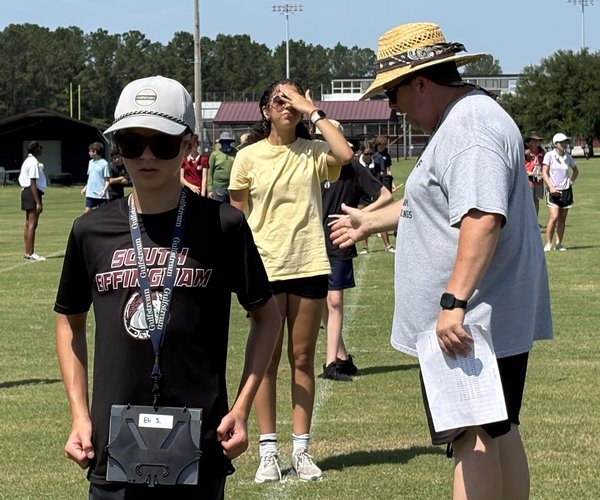Effingham County commissioners have adopted a budget for the fiscal year — after some final wrangling and adjusting.
Among the changes to the budget was moving the Effingham County Sheriff’s Office traffic enforcement unit back into the ECSO budget after it was a separate department. Doing so, commissioners said, saves about $81,900, cutting the sheriff’s office budget by about 1.9 percent.
Commissioners approved the budget by a 5-1 vote, with Chairman Dusty Zeigler registering the lone vote in opposition.
“I was under the impression we were going to reduce the overall budget,” Zeigler said, “instead of re-allocating money from one department to another. I would encourage the board to consider using the rainy day funds to further reduce the budget.”
The budget, at $27.05 million, is $1.176 million less than the previous fiscal year spending plan, a 4.2 percent drop in spending.
County finance director Joanna Wright explained the rainy day funds are used to tide the county over during times when tax receipts are slow or virtually non-existent. They are anticipated to carry the county through six months of operations. County
Administrator David Crawley said if that happens, the county’s operations primarily would be limited to public safety.
“You try to have 10-15 percent on hand for cash flow,” Wright said.
Alan Zipperer thanked the commissioners for the cuts they have made and urged them to cut the budget even more.
“As business owners and a family man, we’ve felt a lot of cuts in our income in the last few years,” he said. “I think the time is now to scale back. Next year is going to be even tougher because y’all will have even less money to spend.”
Zipperer also questioned how much revenue the sheriff’s traffic unit, a four-man team, is bringing in to the county. He also said he didn’t want to single out the sheriff’s office and asked the commissioners take a closer look at all their departments.
“It was sold to us taxpayers as ‘we’re going to generate a million dollars in revenue,’ when in fact they’re going to generate a quarter million dollars in revenue,” Zipperer said. “I’m asking you, with every department, to relook at how it performs.”
ECSO Sgt. Brian Mundy, commander of the traffic unit, said money wasn’t the object in starting the traffic team.
“To generate revenue, that’s not what we’re here for,” Mundy said. “That’s a by-product. The sheriff wanted to reduce the number of wrecks in this county and the number of fatalities, and I believe we’ve done that. The number of serious injury wrecks has been reduced. The Georgia State Patrol works a lot of serious injury wrecks, and they don’t work very many of them anymore because we’re not having them.”
Mundy told commissioners the traffic team alone has written traffic citations for less serious offenses totaling $332,248.50, resulting in $283,863 in fines paid to the court. Citations written for criminal offenses, including driving under the influence, suspended license and possession of marijuana, have resulted in $64,601.50 in fines paid out of $105,401.50 assessed.
Out of $437,650 in fines assessed since the traffic unit started in November, the courts have received $348,465 in payments, according to Mundy. Wright said the operation of the unit, averaged over a four-year period, costs about $363,000 a year.
Mundy also pointed out the unit has written fewer citations from November to June. But that could be because drivers now know the ECSO traffic unit is on the road.
“People are slowing down, they’re wearing their seatbelts and they’re driving more responsibly because we’re out there making an impact,” he said.
The traffic team also has made presentations in the schools to educate drivers and future drivers about traffic safety.
Commissioner Steve Mason said he didn’t want to do away with the unit but wanted to see it folded back into the regular sheriff’s office budget.
“I think it has done well,” he Mason said. “It has had an effect.”
Commissioners also adopted the millage rate, setting the county rate at 8.558.
Commissioners also adopted the sanitation and fire fees for the coming year. The sanitation fees are not changing — remaining at $180 per year, with $108 per additional cart per year.
Fire fees are rising. The residential fee, which has been at $35 per year for several years, is going up to $55 per year.





